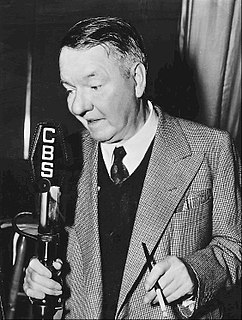A Quote by Saul Bellow
A fool can throw a stone in a pond that 100 wise men can not get out.
Related Quotes
Beyond the terrace, a light breeze stirred the reeds at the edge of the pond. Looking out at this intimate vista, one could see the reeds and a stone lantern and the brightest of the evening's stars floating on the gloaming mirror of the pond. Then the breeze came again to crack the water's surface, and the picture was flooded.
We could almost say that being willing to be a fool is one of the first wisdoms. So acknowledging foolishness is always a very important and powerful experience. The phenomenal world can be perceived and seen properly if we see it from the perspective of being a fool. There is very little distance between being a fool and being wise; they are extremely close. When we are really, truly fools, when we actually acknowledge our foolishness, then we are way ahead. We are not even in the process of becoming wise — we are already wise.



































